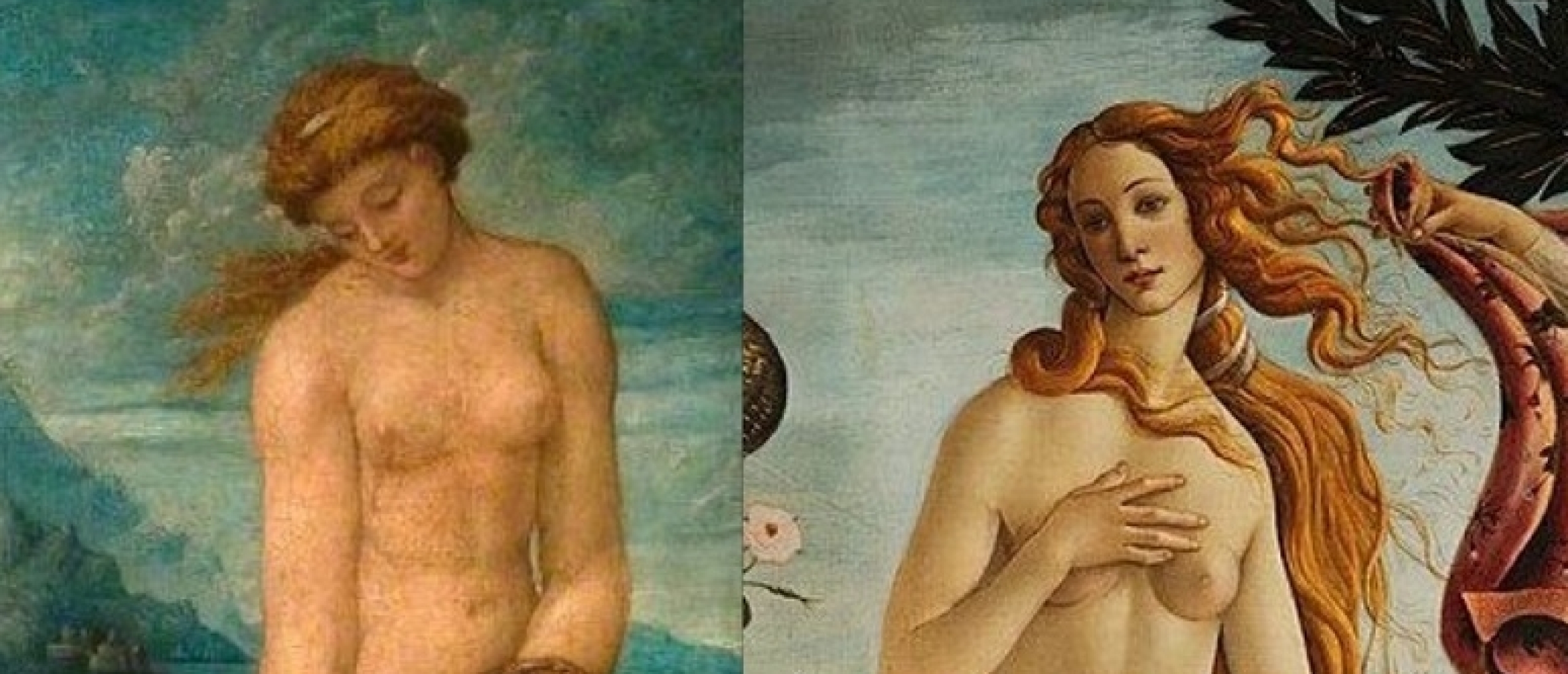
George Frederic Watts (1817-1904) was a British painter and sculptor famous for his symbolist works. Despite his own notion that he painted ideas, not things, many of his images are quite sensuous. The combination of natural talent for arts and different sources of inspiration made Watts' artistic world curious to reflect upon.
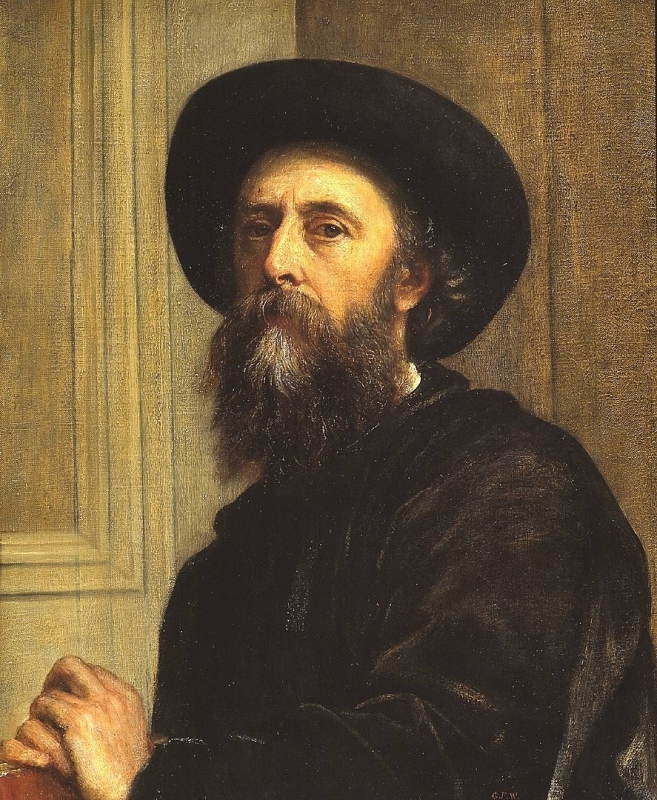
Fig. 1. Self-Portrait, 1864 (Wikipedia.org)
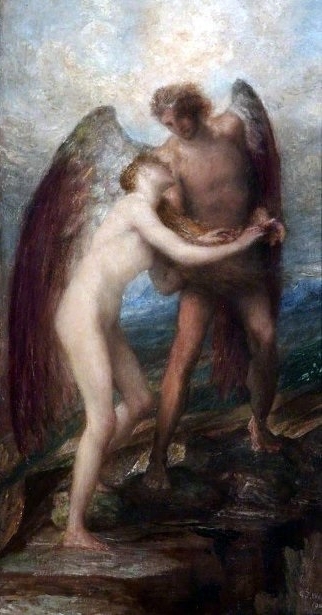
Fig. 2. Love and Life (conchigliadivenere.files.wordpress.com)
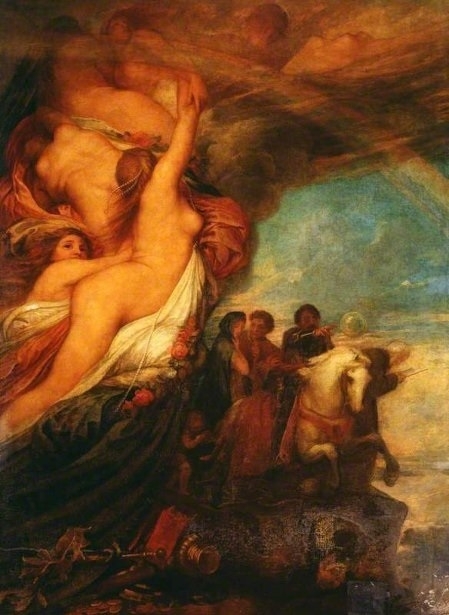
Fig. 3. Life’s Illusions (conchigliadivenere.files.wordpress.com)
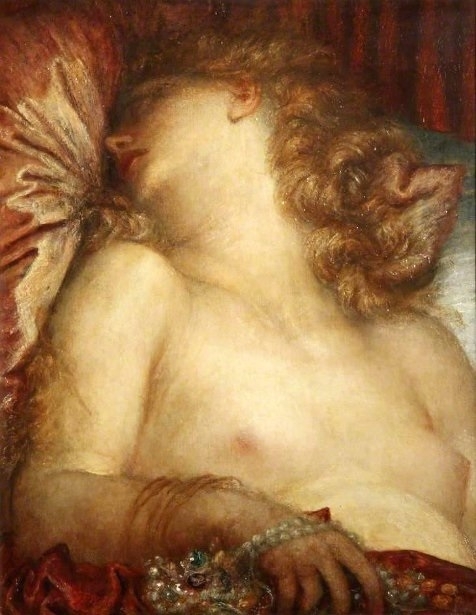
Fig. 4. The Wife of Pluto (conchigliadivenere.files.wordpress.com)
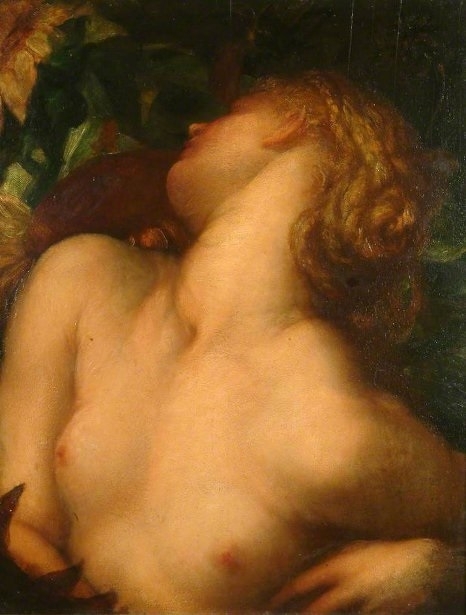
Fig. 5. Clytie (conchigliadivenere.files.wordpress.com)
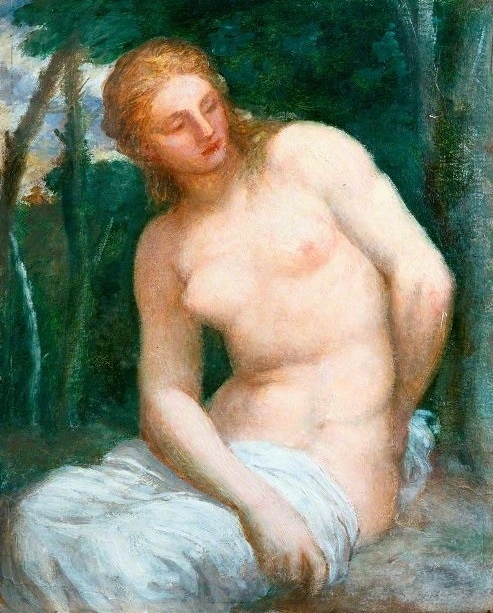
Fig. 6. Daphne’s Bath (conchigliadivenere.files.wordpress.com)
Handel, Michelangelo, And Titian
Watts originated from a family of a poor piano-maker who named his son after George Handel, as Watts was born on the birthday of the German composer. His mother died when he was still a kid, so the father alone was responsible for shaping his personality and recognizing his talents. It’s the father who introduced to him Greek mythology and Christianity, which would become main topics of the artist. Watts started sculpting at the age of 10. Eight years later, he enrolled in the Royal Academy. At the age of 20, he first exhibited. In 1843, he won a prize in a competition of murals for the new Houses of Parliament at Westminster. It allowed him to visit Italy and study Michelangelo's Sistine Chapel and Giotto's Scrovegni Chapel. When Watts returned to London, his experience resulted in producing a fresco inspired by Raphael on the upper part of the east wall of the Great Hall of Lincoln's Inn. In 1853, he took another short trip to Italy, where Titian became another source of his inspiration. Later, Watts took part in the Halicarnassus excavation traveling through Constantinople and the Greek islands.
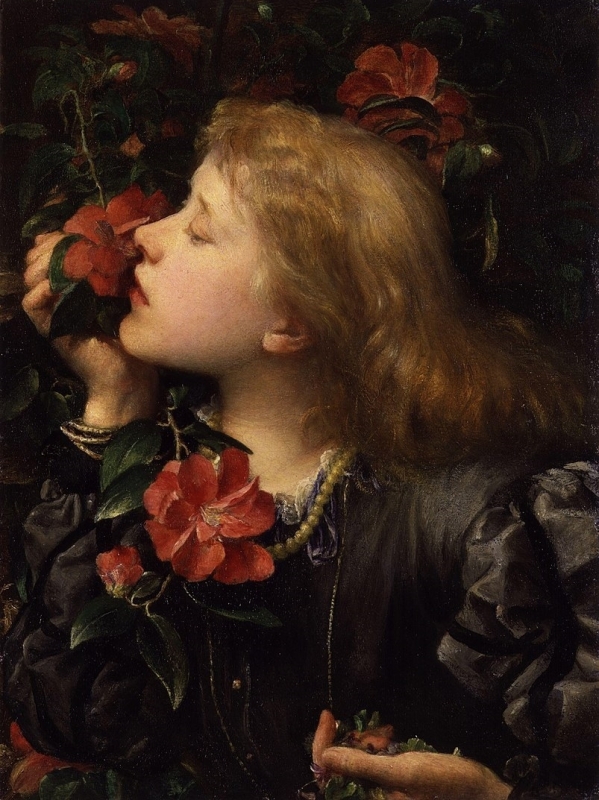
Fig. 7. Choosing (Wikipedia.org)
From Raphael To Pre-Raphaelites
Considering Watts' interest in Italian masters, it's curious to watch his shift to Rossetti, a founder of the Pre-Raphaelite Brotherhood, opposing academic art with its' Italian roots. The most impressive example of Pre-Raphaelite influence is a portrait of young actress Ellen Terry, his 17-year-old wife, whom he proposed being 30 years senior. Ellen couldn't manage the attitude of the Watts circle, so their marriage lasted only ten months. The picture entitled Choosing demonstrates Ellen smelling camellias and violets. The former symbolize earthy vanities (good-looking but scentless), the latter - virtues (humble but with an elegant smell).
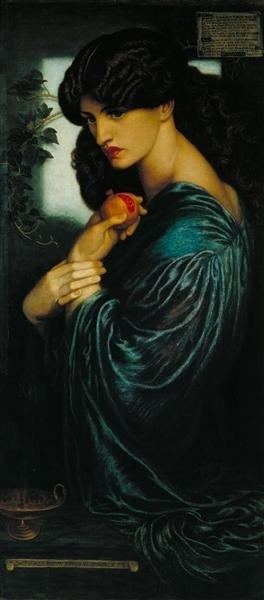
Fig. 8. Rossetti, Proserpine, 1874 (wikiart.org)
Scents And Serpents
As known, the Pre-Raphaelites frequently used religious themes in their works, e. g. Annunciation by Rossetti. At the same time, their adherence to religion didn't exclude the persistent presence of flowers, colors, fruits, and scents in their pictures. Pre-Raphaelite heroines are surrounded by things they can smell and taste, as well as Virgin Mary, who is greeted with lilies. Scents can be associated with spirituality and accumulate symbolic meanings, but they also may embody temptation through a recurring motif of a poisoned fruit eaten by a naive beauty (we can see it in Rossetti's Proserpine, who tasted a pomegranate and was bound to come back to her husband).
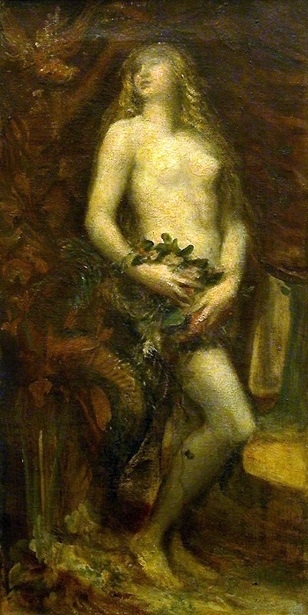
Fig. 9. Eve Tempted (conchigliadivenere.files.wordpress.com)
Eve Tempted And Repentant
Being influenced by Raphaelites and Pre-Raphaelites, using the manner of Rubens and Titian, George Watts produced an eye-catching triptych of the fall of Eve. Her nude figure can be regarded as a reference to "Raphaelites" who paid a lot of attention to the human body. What makes this work truly amazing is a part influenced by Pre-Raphaelites - the quite sensual act of smelling the forbidden fruit. As Eve was an ancestor of all Pre-Raphaelite beauties tasting the fruits, George Watts seems to produce a Pre-Pre-Raphaelite picture, an archetypical image containing not only Rossetti's esthetics but the academic influence as well.
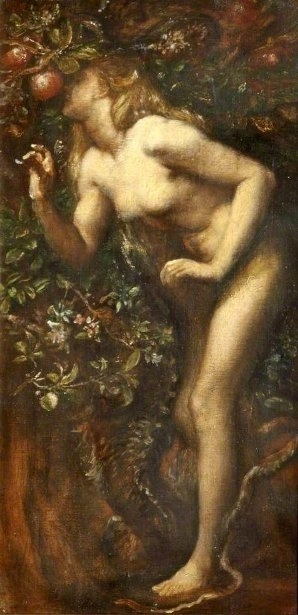
Fig. 10. Eve Tempted (conchigliadivenere.files.wordpress.com)
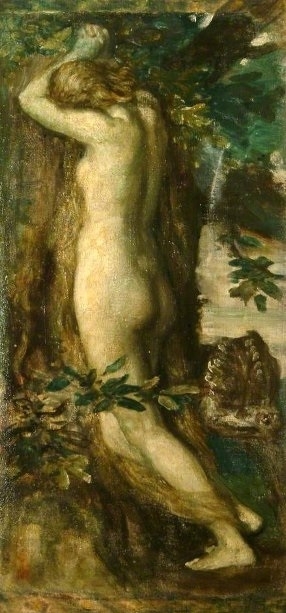
Fig. 11. Eve Repentant (conchigliadivenere.files.wordpress.com)
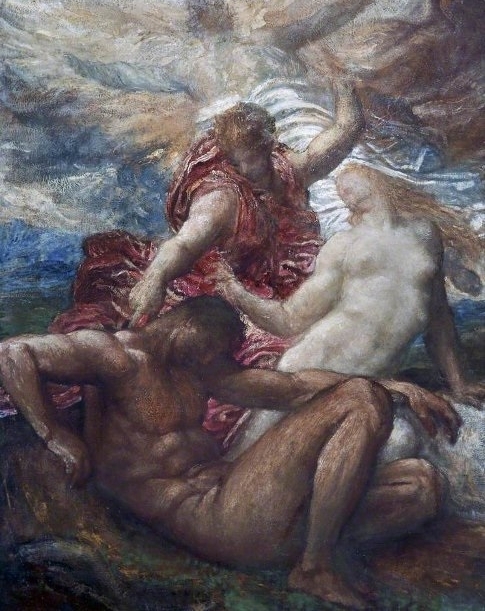
Fig. 12. Eve Created, study (conchigliadivenere.files.wordpress.com)
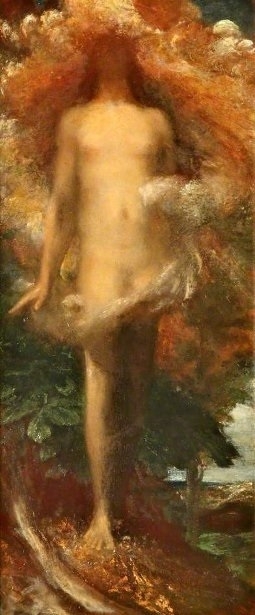
Fig. 13. She Shall Be Called Woman (conchigliadivenere.files.wordpress.com)
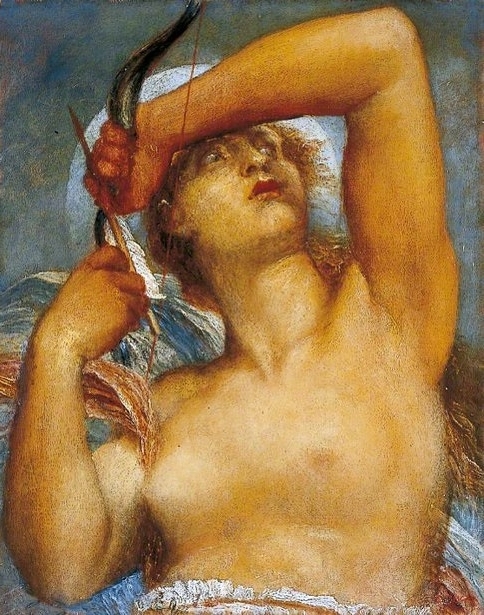
Fig. 14. Artemis (conchigliadivenere.files.wordpress.com)
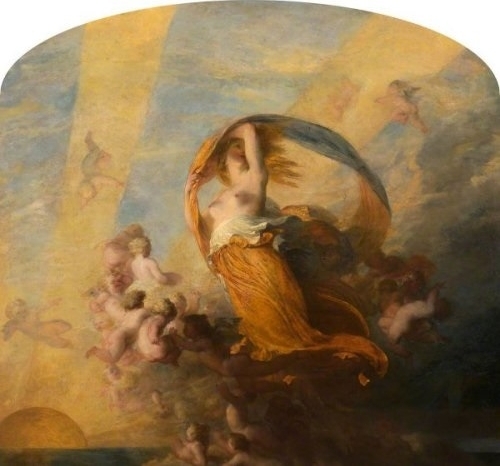
Fig. 15. Aurora (conchigliadivenere.files.wordpress.com)
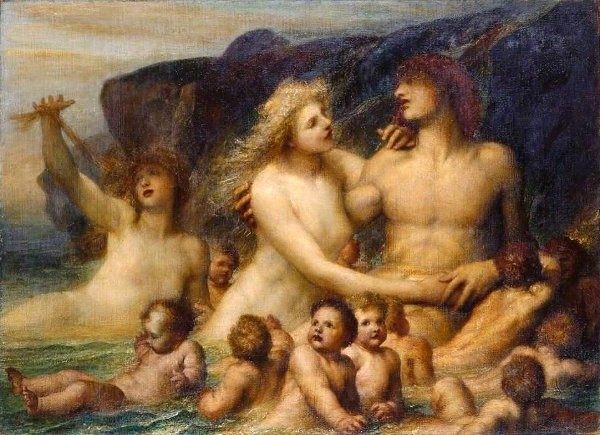
Fig. 16. A Greek Idyll (conchigliadivenere.files.wordpress.com)
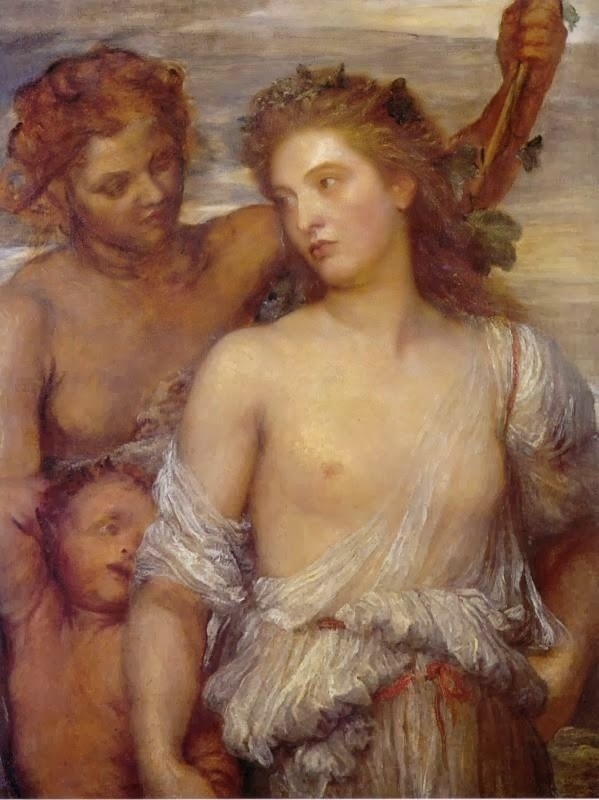
Fig. 17. A Bacchante (blogspot.com)
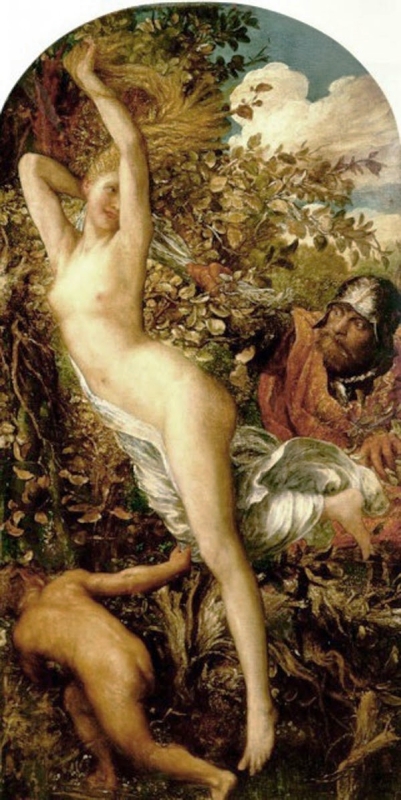
Fig. 18. Fata Morgana (Wikipedia.org)
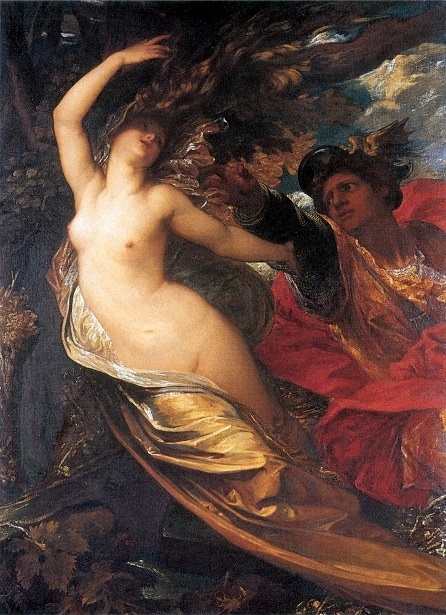
Fig. 19. Orlando Pursuing Fata Morgana (conchigliadivenere.files.wordpress.com)
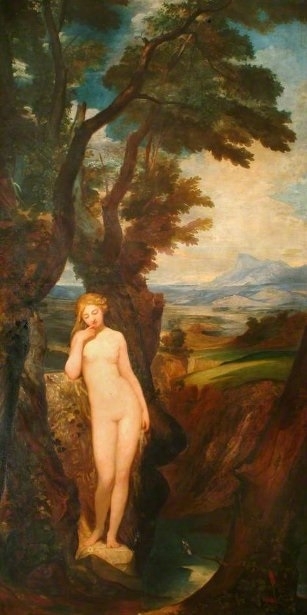
Fig. 20. Echo (conchigliadivenere.files.wordpress.com)

Fig. 21. Psyche (conchigliadivenere.files.wordpress.com)
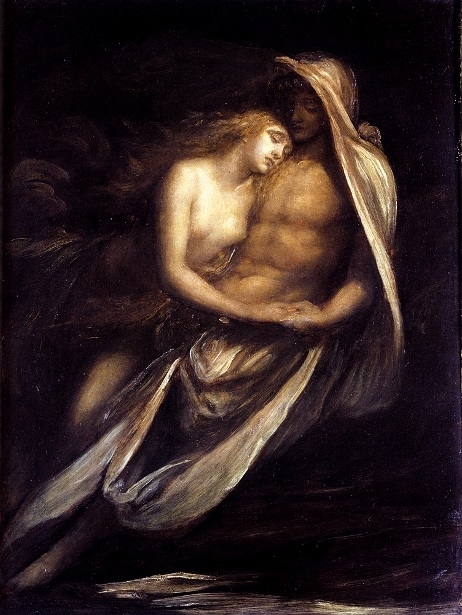
Fig. 22. Paolo and Francesca (conchigliadivenere.files.wordpress.com)
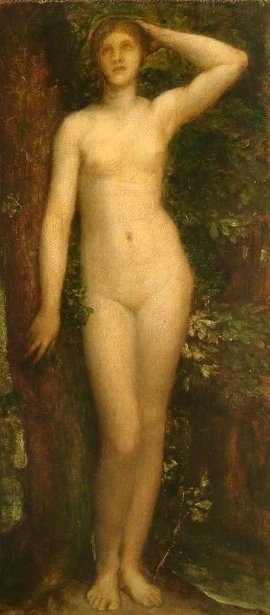
Fig. 23. Thetis (conchigliadivenere.files.wordpress.com)
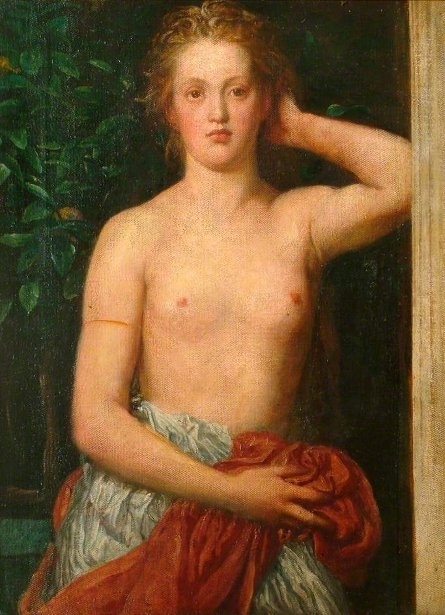
Fig. 24. Rhodopis (conchigliadivenere.files.wordpress.com)
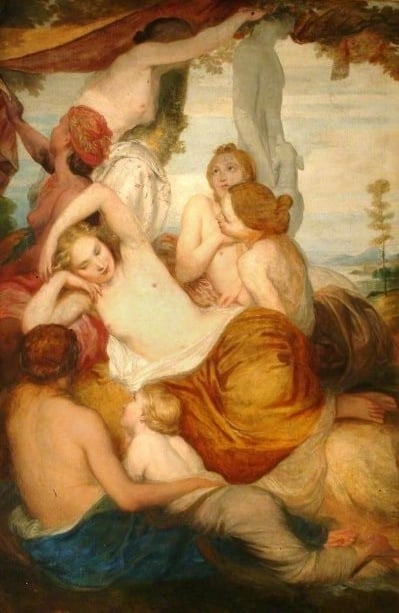
Fig. 25. Diana’s Nymphs (conchigliadivenere.files.wordpress.com)
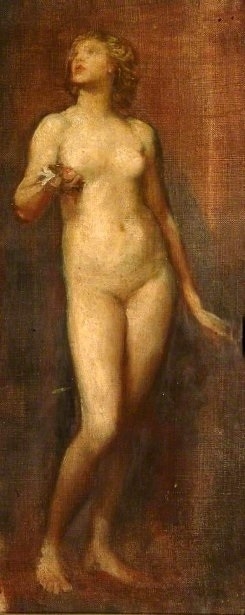
Fig. 26. Nude study (conchigliadivenere.files.wordpress.com)
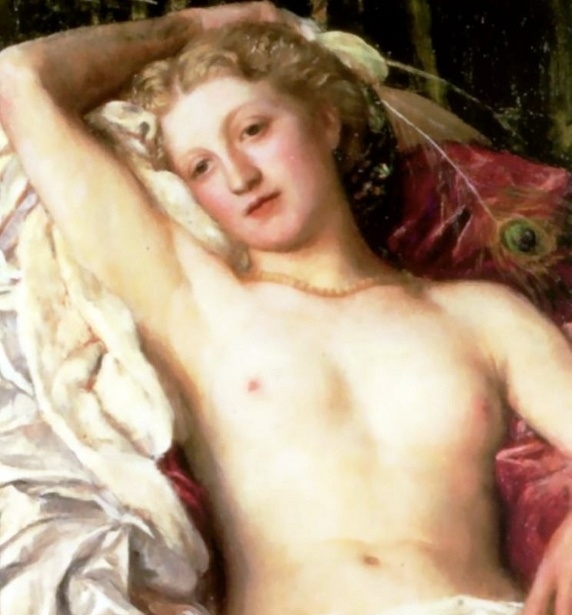
Fig. 27. Nude with a Fan (conchigliadivenere.files.wordpress.com)

Fig. 28. Thetis (conchigliadivenere.files.wordpress.com)
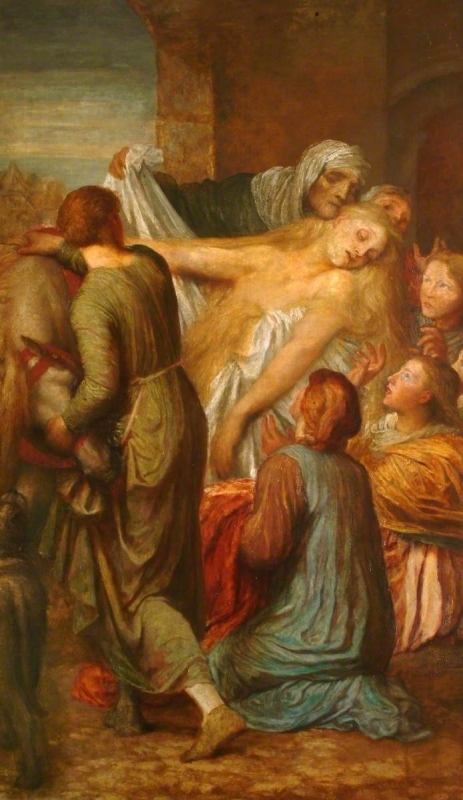
Fig. 29. Lady Godiva (artuk.org)
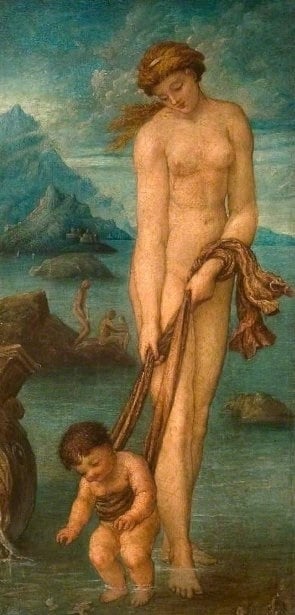
Fig. 30. Woman and Child (conchigliadivenere.files.wordpress.com). Curiously, the figure of woman resembles Venus of Botticelli, so, in this context, the kid turns into a little cupid.
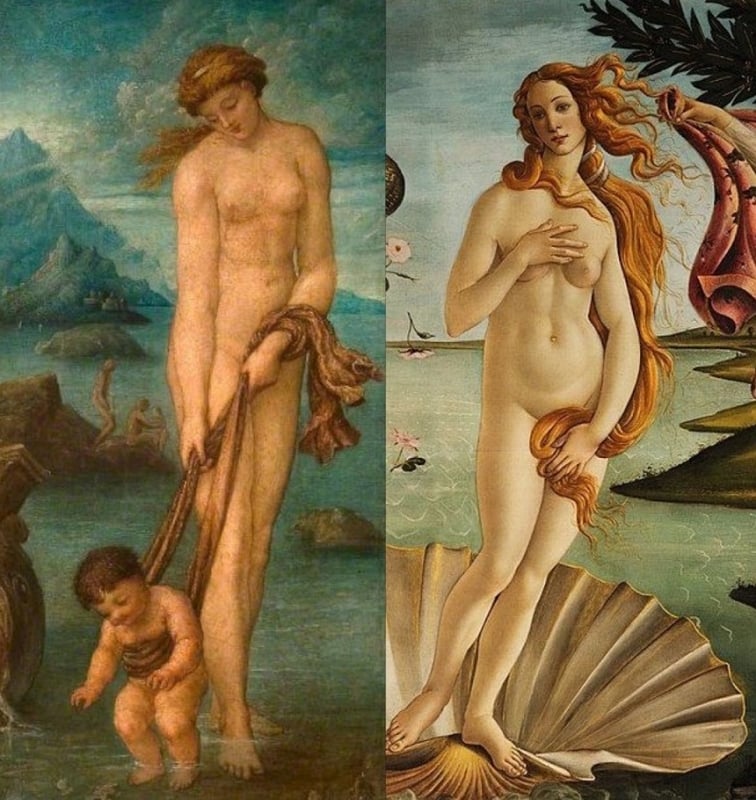
Fig. 31. Left: Woman and Child, Watts. Right: Botticelli, The Birth of Venus.
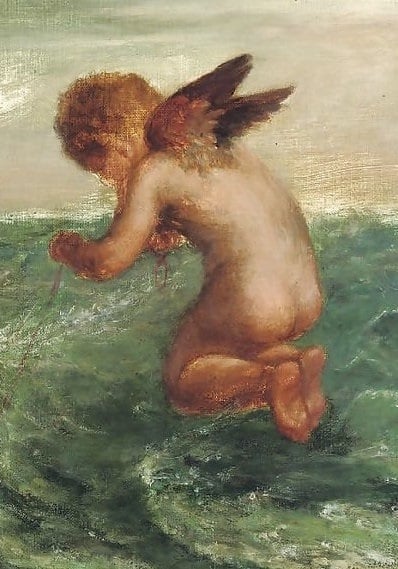
Fig. 32. Good Luck To Your Fishing (georgefredericwatts.org)
Sources: Wikipedia.org; conchigliadivenere.wordpress.com
Click HERE for an article on the Colombian figurative artist and sculptor Fernando Botero overdoing Rubens...!!
